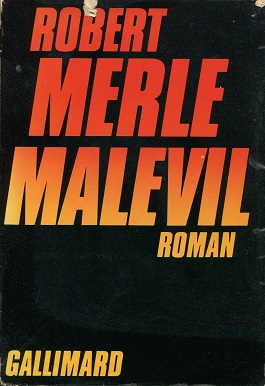In a consumer society the product consumed by man in largest quantities is optimism. Since the days when it became known that the planet was gorged with everything needed to destroy it—and if necessary our neighbor planets as well—somehow we had all learned to sleep peacefully at nights again. And oddly enough, the very excess of those terrifying weapons and the growing number of nations possessing them had actually proved a factor in our gradual reassurance. From the fact that since 1945 none of them had yet been used, it was emotionally deduced that no one would ever dare to and that nothing was going to happen. This false security in which we lived had even been found a name and given the semblance of a grand strategy. It was called “the balance of terror.”
And another thing needs to be said. Nothing, absolutely nothing, in the weeks preceding Zero Day made it possible to predict it. There were wars, of course, and famines and massacres. And here and there a few atrocities. Some of them flagrant (in the underdeveloped countries), others less obvious (in the Christian countries). But nothing, taken all in all, in any way different from what we had been seeing for the past thirty years. And all of these things had in any case occurred at a convenient distance, among peoples far removed from us. We were distressed by them, of course, we expressed indignation, signed petitions, or even donated small sums of money on occasions. But at the same time, in our heart of hearts, after having dutifully experienced these vicarious sufferings, we returned to our usual feeling of security. Death was something that always happened to others.
The mass media—I still have the last numbers of Le Monde and only the other day reread them—were not being particularly alarmist during those weeks. Or if they were it was on a long-range basis. About pollution, for example. They were predicting that in forty years’ time the whole planet might be teetering on the edge of the abyss. Forty years! It’s like a dream! If only we could count on those forty years still!
It is simply a fact, one I state without any intention of irony, since that would really be too easy. Newspapers, radio, television, none of the great organs of communication that used to keep us so well informed—or at any rate so abundantly informed—foresaw in any way or at any point what was about to happen. And when it did happen they couldn’t even cover the story after the event; they had vanished from the face of the earth.
Although it’s quite possible that what happened was totally unpredictable anyway. Was it perhaps some terrifying miscalculation on the part of a statesman persuaded by military advisers that he at last held the ultimate weapon? Or was it sudden insanity on the part of someone in a position of responsibility who gave an order that no one was subsequently able to reverse? Perhaps a physical breakdown producing a chain reaction of automatic responses, thereby unleashing identical responses from an opponent, until the moment of terminal annihilation was reached?
One could go on piling up such hypotheses ad infinitum. But all means of verifying them have been forever destroyed.
Darkness begins on that day when History came to an end simultaneously with its object. The civilization whose progress it was there to record had ceased to exist.







